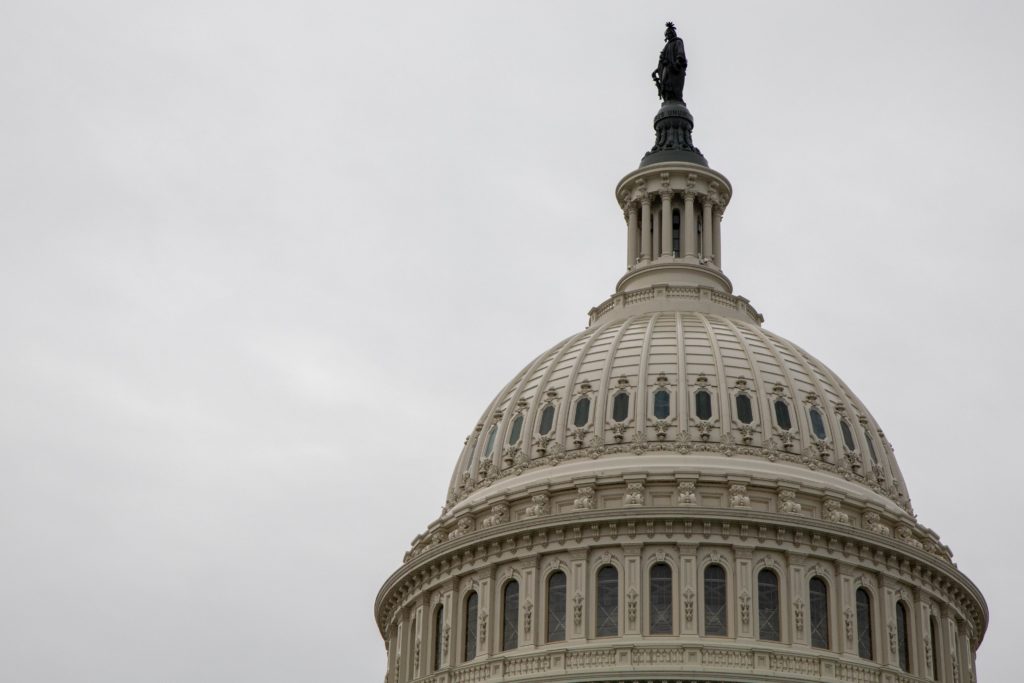U.S. Senators Booker, Wyden and Schumer have unveiled a public draft of the Cannabis Administration and Opportunity Act—their long-awaited Senate marijuana reform bill—which includes language from the House-passed Marijuana Opportunity Reinvestment & Expungement (MORE) Act.
The MORE Act
The MORE Act was introduced last session, creating the Marijuana Justice Coalition to build widespread support. This collective effort resulted in the MORE Act being passed out of committee in November 2019, passed by the full House in December 2020, and reintroduced this session in May 2021.
This new legislation builds on the MORE Act, and provides major opportunity to make marijuana justice a reality this session. However, there will still need to be work done to remove drug testing provisions and exclusionary language that would continue to deny justice to certain individuals.
But, this particular cannabis legalization bill coming out of the U.S. Senate is the most progressive to date as it does include key criminal justice reforms and equity for minorities and leaves the door open for home cultivation.
According to NBC’s TODAY show, Senator Schumer said is “one of the high priorities” for Democrats. In regards to changing the legislation and legalizing marijuana at the federal level, Senator Booker explained, “There is an urgency to this because there are people all over our country seeing their lives destroyed, they’re hurt.”
The exclusive interview is part of NBC News’ week-long “Red, White & Green” series looking at the future of weed in the U.S.
“There is an urgency to this because there are people all over our country seeing their lives destroyed, they’re hurt.”
-SENATOR CORY BOOKER
Last week, @SenSchumer, @RonWyden & I announced a historic plan to legalize marijuana federally, expunge records & help communities hurt by the failed drug war. This afternoon I’d like to answer your questions about our plan—please ask them by tagging me or use #MarijuanaJustice.
— Cory Booker (@CoryBooker) July 19, 2021
Cannabis Equity
Dasheeda Dawson, Chair of Cannabis Regulators of Color Coalition (CRCC) and Cannabis Program Supervisor at City of Portland OR said, “The introduction of the Schumer, Wyden and Booker draft legislation is the first serious look at cannabis legalization for the Senate and I am hopeful that the equity-centered policy reform and regulation led by our members at the state and local levels will continue to shape this historic bill. Across the country, we have seen the positive impact of sharing our informed insights, testimony and proposed amendments aligned with our organization’s founding principles. As active stakeholders overseeing policy and implementation in the existing cannabis industry, CRCC will continue to actively engage with the Senators’ teams, providing industry best practices and cannabis competency gained from our collective and diverse experiences.”
-Dasheeda Dawson, chiar, CRCC
Dr. Rachel Knox, MD MBA, Chair of the Association for Cannabis Health Equity and Medicine (ACHEM) released the following statement: “We are most encouraged by Booker, Wyden, and Schumer’s commitment to working with stakeholders to craft a final legalization bill for the Senate. Often missing from federal cannabis legislation are critical mention of rights and protections for patients and healthcare providers, and the institutional reform necessary to prepare students and professionals in medical fields to care for people who consume cannabis. The Association for Cannabis Health Equity and Medicine (ACHEM) looks forward to engaging the sponsoring offices with key recommendations that promote patient protection, professional proficiency, and institutional competency and reform.”
-Dr. Rachel Knox, MD MBA, Chair, ACHEM
Cannabis Law Reform
Maritza Perez, Director of the Office of National Affairs at the Drug Policy Alliance, released the following statement:
“We have been clear from day one that any federal marijuana reform bill must be equally comprehensive to the devastation that has been caused by prohibition, particularly in Black, Latinx and Indigenous communities. And we are grateful to see Senators Booker, Wyden and Schumer heeding that call by including language directly from the MORE Act—centering social equity, reparative justice and reinvestment—that we championed in the House, in the Senate bill, and we look forward to working with them to make marijuana justice a reality this session.
“However, work remains to ensure justice does not fall short. To our dismay, the Senate draft contains exclusionary language that ended up getting added to the House-passed MORE Act last year that would continue to subject federal employees to drug testing and deny certain individuals—who have already paid the highest price—the opportunity to expunge their records. In order for this bill to truly end marijuana prohibition in a comprehensive way and begin to repair the egregious harms of the past, we cannot continue to make room for some to be left out because of laws that were unjust and racist to begin with.
“We call on the House to remove exclusionary language from the MORE Act and swiftly pass the bill and implore the Senate to also remove this language ahead of bill introduction.”
The following is a statement from Adam Eidinger, co-founder of District of Columbia Marijuana Justice (DCMJ), on the Cannabis Administration and Opportunity Act:
“We’re trying not to get too excited because we know there is a tough legislative fight ahead, but we have to admit this appears to be the most progressive multi-faceted cannabis legalization legislation with any hope of passing that has been presented so far in Congress. We appreciate that the consumer-oriented approach to legalization, which DCMJ has advocated and agitated for, did not go unnoticed by Sens. Schumer, Wyden and Booker.”
“There are meaningful criminal justice reforms in the bill, including essential provisions that would expunge the federal criminal records of anyone arrested for the non-violent use of cannabis. There are specific carve-outs to ensure equitable minority ownership and management opportunities in the industry. It also clears the way for interstate transport and commerce and lays down a reasonable tax and regulatory structure.”
“We’re very pleased the legislation leaves open the door for states to continue to legalize home cultivation. However, as a final federal bill is hammered out, DCMJ will push for more clarity and language that explains the economic and medicinal components of why home cultivation is essential. Craft cultivation in the privacy of our homes is a lawful right any adult American with a green thumb should be able to enjoy.”
According to the most recent Gallup public opinion poll, 68% of Americans support marijuana legalization. Thirty-five states plus the District of Columbia have laws that allow legal access to medical marijuana, 16 states plus the District of Columbia allow legal access to marijuana for adult use, and two additional states—New Mexico and Virginia—have passed legalization, but it has yet to take effect. Despite this, the continued enforcement of marijuana prohibition laws are responsible for more than half a million arrests in the United States every year. Black and Brown people are disproportionately impacted, with Black people specifically being four times more likely to be arrested for possession of marijuana than white people despite equal rates of consumption. Marijuana has also been one of the leading causes of deportation in the United States.
The bill, if passed into law, would:
- Let states decide if or how to legalize marijuana. This “states’ rights” approach has gained more traction in the Senate than other comprehensive reforms.
- Eliminate the onerous Section 280E of the tax code by removing marijuana as a controlled substance.
- Phase in federal taxes on cannabis product sales. The draft appears to initially call for a 10% tax.
- Create three grant programs to help the economically-disadvantaged, including those hurt by the war on drugs.
- Bolster funding for research into cannabis, including its impacts on the brain and mental health. In public hearings, conservatives often talk about potential harm from marijuana use and the need for more research before legalization is considered.
- Remove federal penalties on marijuana and expunge nonviolent federal marijuana criminal records.
WATCH LIVE: I’m standing with @RonWyden and @SenBooker to release a discussion draft of the Cannabis Administration and Opportunity Act.
— Chuck Schumer (@SenSchumer) July 14, 2021
It’s our legislative proposal to end the federal prohibition on marijuana and repair damage done by the War on Drugs. https://t.co/vVkd4bWQ77
Cannabis Administration And Opportunity Act: Text Can Be Found HERE, One Pager Can Be Found HERE, Detailed Summary Can Be Found HERE.





